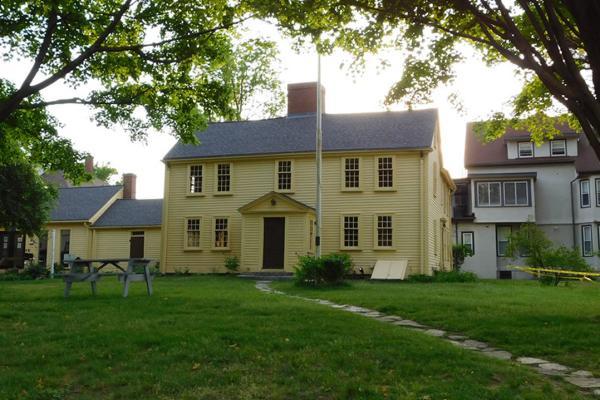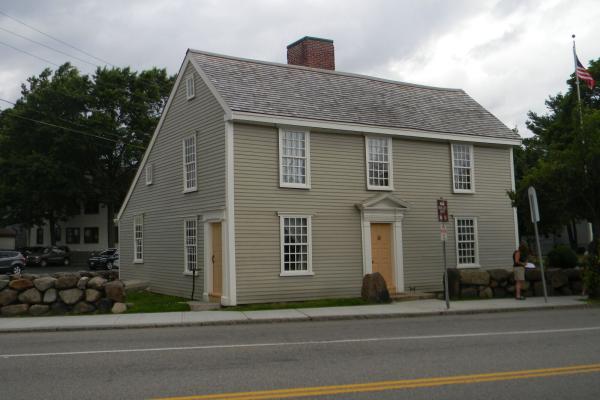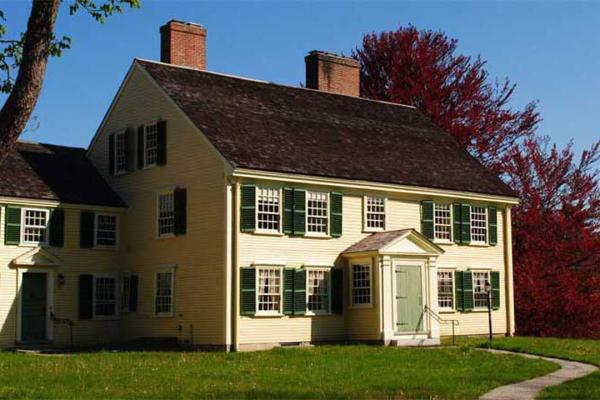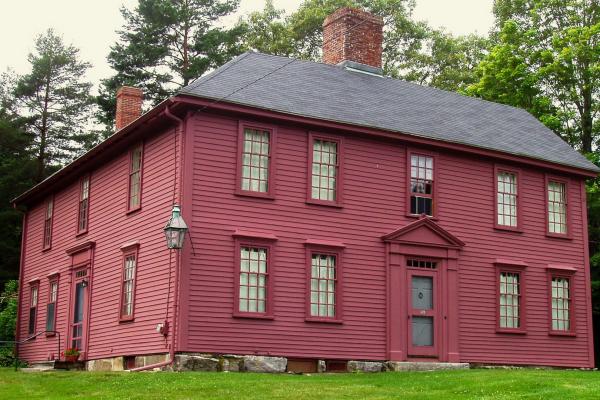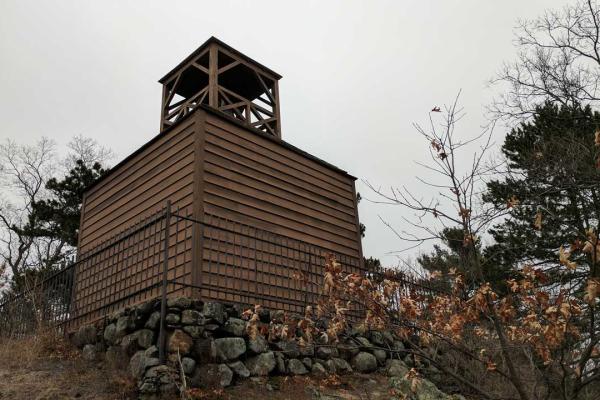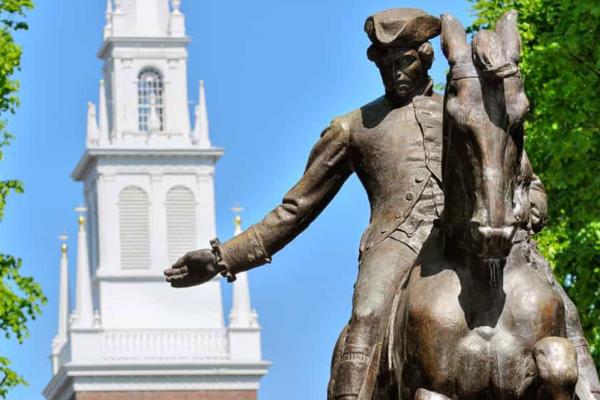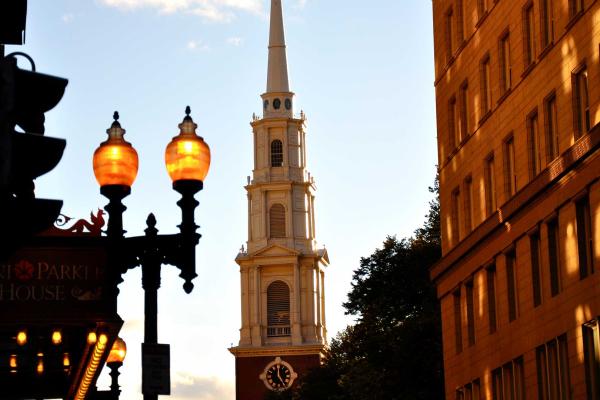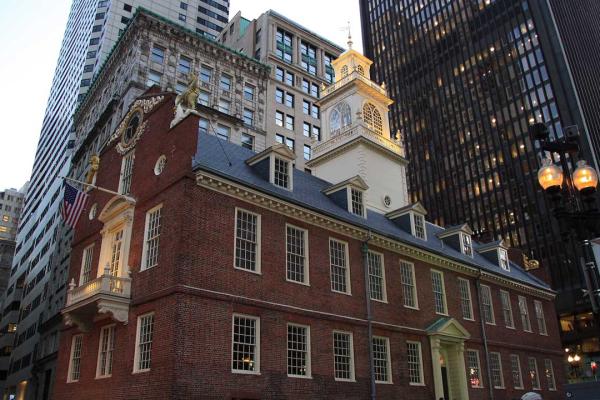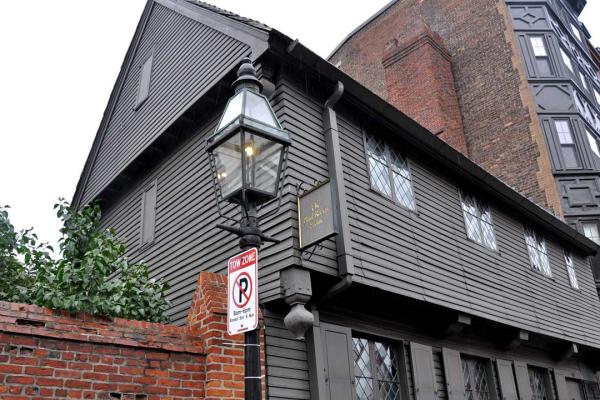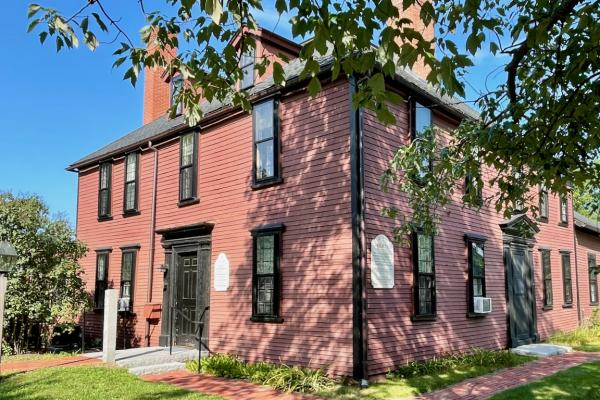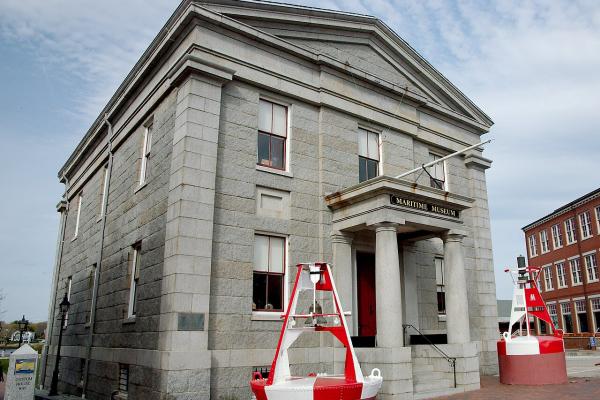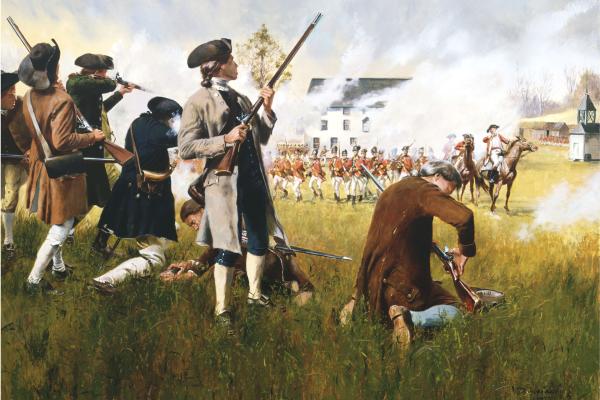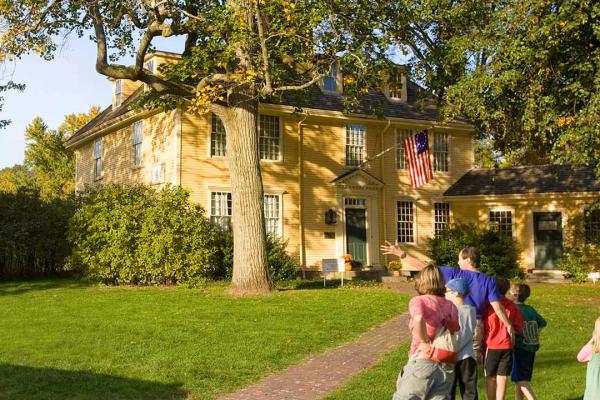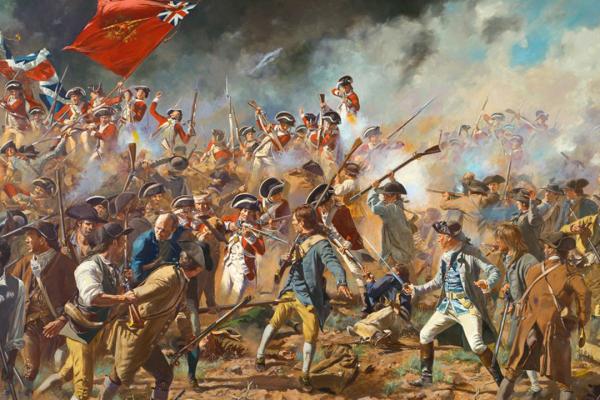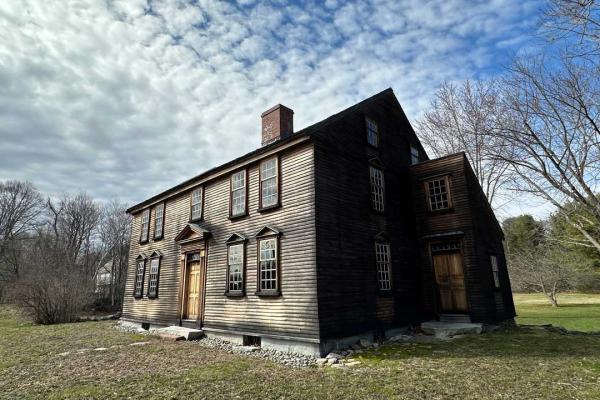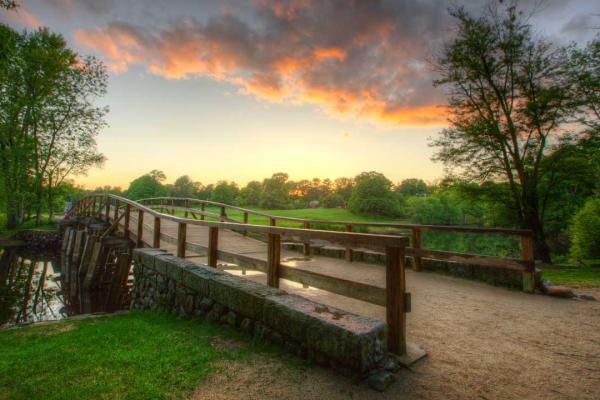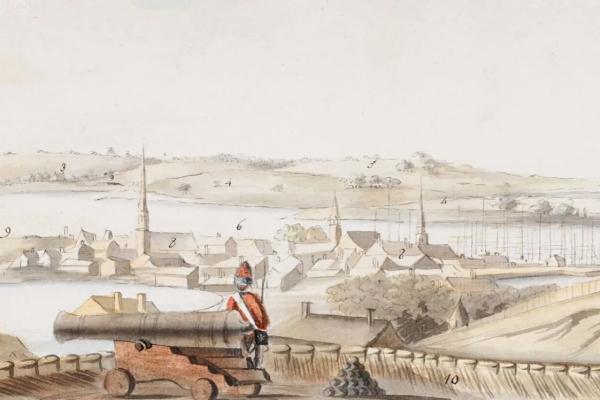One of the bloodiest sites during the Battle of Lexington and Concord, this house saw extensive combat and still bears the scars left behind by the...
This home, now known as the "John Quincy Adams Birthplace," was John and Abigail Adams' residence during the Revolutionary War. While John served as a...
Major John Buttrick, whose name is now the sake of this homestead, was a fourth generation American whose great-grandfather, William Buttrick, helped...
Used by both sides during the Battle of Lexington and Concord, the Munroe Tavern, it was most famously used Hugh Percy during his relief march to aid...
The sound of liberty rang from this bell in the early morning of April 19, 1775, to call forth the Lexington militia. Today, a reconstructed belfry...
The oldest standing church in Boston, it once signaled lookouts in Charlestown, which triggered Paul Revere's famous ride to alert militia of the...
Frequented by many influential figures in Boston's revolutionary history, the Old South Meeting House served as a place of public discourse that...
One of the oldest public buildings in the United States, the Old State House was the seat of government in Massachusetts leading up to the Revolution...
One of the oldest residential buildings in Boston, this structure was once the home of one-and-only Paul Revere, an avid member of the Sons of Liberty...
Liberty Trail History Makers
The Revolutionary War was a war unlike any other — one of ideas and ideals, that shaped “the course of human events. Explore the history and personalities from this pivotal time in American history.A wealthy merchant and political leader from Massachusetts, Hancock was a key figure in the American Revolution, serving as president of the Second Continental Congress, signing the Declaration of Independence, and later serving as governor of Massachusetts.
Abimeleck Uncus, a Mohegan Native American soldier in the Continental Army, served during the American Revolution, leaving behind a carved powder horn that commemorates his service at the Siege of Boston in 1775.
A pioneering poet, playwright, and political writer during the American Revolution, Warren's works challenged British rule and influenced early American politics. She became one of the first women to publish a history of the Revolution and was an outspoken advocate for civil liberties.
Regarded as the first martyr of the American Revolution, Crispus Attucks was the first to fall in the Boston Massacre on March 5, 1770. Of African and Native American descent, he became a powerful symbol of the fight for liberty, later embraced by abolitionists as a hero of both American independence and the struggle for equality.

